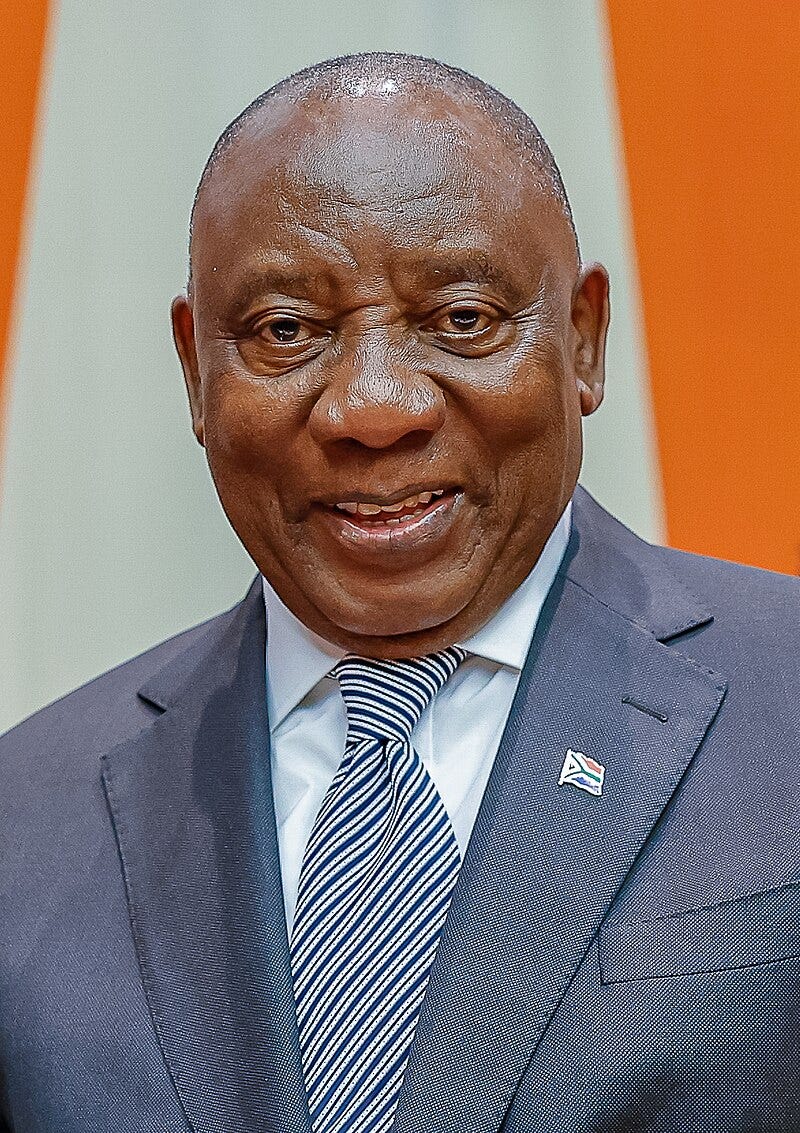What on Earth is Ramaphosa Up To?
Written by: Kamogelo Mangena
The African National Congress (ANC) has reached a cul-de-sac in its bid to neutralise the Economic Freedom Fighters (EFF) and growing dissent in the party. It is contemplating on the most bizarre.
After the party’s protracted ambiguity on the land question, the ANC has decided to go ahead with amending the Constitution to allow for expropriation of property without compensation. The consequences will be bad for South Africa’s already-weak economy, and bad for the ANC.
As many commentators have long predicted, President Ramaphosa is in dire straits. The need to ensure unity while taking fiscally prudent policy measures will become a difficult task he inherited from his predecessor, and this will result in confused policy-making and investor ambivalence in turn. The economy is in doldrums as the official unemployment rate has increased to 27.2% in the second quarter of 2018, up from 26.7% in the first three months of the year.
It appears that some members of the Cabinet are not talking to each other. How does Ramaphosa convince the agricultural sector to create over a million jobs while in the same vein assumes the role of antagonist? While Ramaphosa has taken the first step towards rebuilding a fractured economy by establishing a presidential investment envoy to seek $100 billion in new investments in the country over the next five years, it remains to be seen how such a target will be reached under the current circumstances. Indeed, one of the President’s investment envoys, Trevor Manuel, had pointed out the difficulty in selling South Africa to investors amid uncertainty over property rights.
Ramaphosa has not delved into how expropriation without compensation would work; only that it will be done in a sustainable manner to ensure that the economy and food security are not threatened. One cannot remove property rights and expect sustainable economic growth and a success story on food security. We need to look no further than our friends in the north - Zimbabwe - whose contempt for tenure security brought about the demise of the economy. Foreign direct investment fell to zero by 2001, and because government no longer enforced titles to land, there was no collateral for bank loans, and existing banks rejected credit extension to farmers. Most banks collapsed and many commercial farmers left for other African countries. The total value of commercial land in South Africa is estimated to be at around R155bn. It serves as collateral for agricultural debt of over R80bn.
South Africa is now entering an era of politics where our middle class and the poor are punishing the ANC for its failures to improve living standards. In a study commissioned by the Institute of Race Relations, an average of 59.71% ANC voters prefer the ruling party to take on more pro-business policies in the hope that business would invest more and create more jobs. By contrast, only a mere 19.5% wanted the ANC to push for a redistributive policy agenda. This has indeed been true in the previous years where we see economic growth correlate with the ANC’s electoral support. This confirms that an overwhelming majority of ordinary ANC voters want more open market policies and not expropriation without compensation, as the President Ramaphosa and those in the EFF suggests.
It could be that Ramaphosa is holding his cards close to his chest, and realises the danger of a splinter group emerging out of the ANC as a result of the inability to unite behind one common vision like expropriation without compensation. This happened with the EFF and the Congress of the People (COPE). While it is not easy to unmask Ramaphosa's thoughts, he should come out and decide who he is, but one thing is clear, property rights and a market-based economy is crucial for a prosperous and thriving society. Protecting property rights will send a clear message that Ramaphosa is serious about making necessary policy reforms to attract much needed investment to catalyse growth and create jobs.
Kamogelo Mangena is a Rational Standard contributor.




